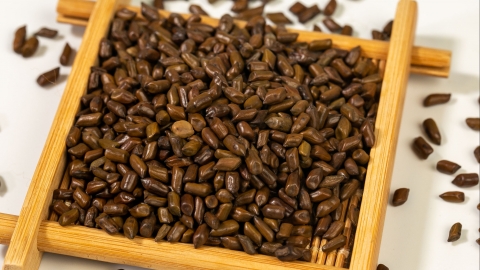Can Cassia seeds be steeped in water for long-term consumption?
Generally speaking, cassia seeds should not be steeped in water for long-term consumption. The specific reasons are as follows:

The cold nature of cassia seeds may damage the yang energy of the spleen and stomach, leading to spleen and stomach cold deficiency, which can cause symptoms such as abdominal pain and diarrhea. Cassia seeds have a certain blood pressure-lowering effect; long-term consumption may lead to excessively low blood pressure, especially for individuals with hypotension, who should avoid it. A small number of people may be allergic to cassia seeds, and allergic reactions such as skin itching, swelling, or difficulty breathing may occur after consumption. Cassia seeds may interact with certain medications, affecting drug efficacy or increasing the risk of adverse reactions. Long-term and excessive consumption of cassia seeds may also lead to adverse effects such as menstrual irregularities, electrolyte imbalance, and abnormal liver or kidney function.
For most healthy adults, drinking cassia seed water is safe, but the appropriate amount should be consumed according to individual constitution and health status. If you have specific health conditions or plan to consume it long-term, it is recommended to consult a qualified physician or traditional Chinese medicine practitioner in advance to ensure safety and suitability.
Pregnant women, nursing mothers, individuals with spleen and stomach cold deficiency, and patients with low blood pressure should avoid or use cassia seeds cautiously. Additionally, you should pay attention to your body's response while consuming cassia seeds. If any discomfort occurs, discontinue use immediately and seek professional advice.








